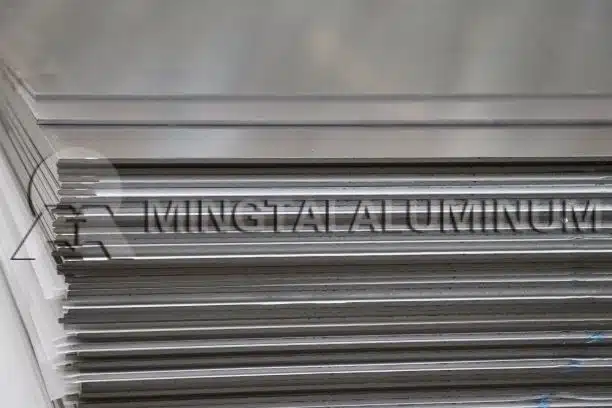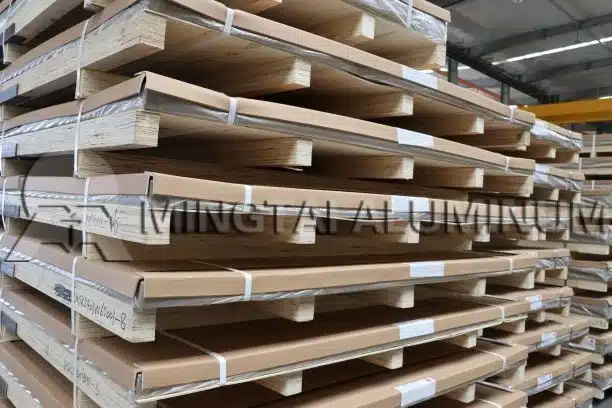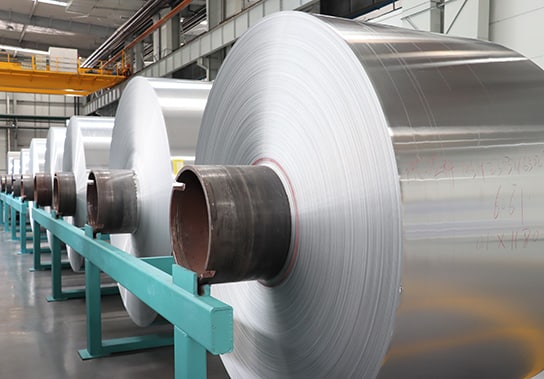The 1/2 inch aluminum plate is a favorite in many industries. It’s strong yet light and doesn’t rust easily. You’ll spot it in things like building frameworks, car parts, or truck components where keeping weight low is a big deal. This thickness handles heavy loads or precise tasks without breaking a sweat.
Today’s industries want materials that last, work in many ways, and are good for the planet. The 1/2 inch aluminum plate checks all those boxes. It’s a go-to choice for all sorts of projects.

Structural Strength and Performance of 1/2 Inch Aluminum Plate
Mechanical Properties That Define Its Strength
The aluminum alloys used in 1/2 inch plates vary depending on their type and how they’re treated. Take the 5052 alloy—it’s tough and can’t be heat-treated. It’s easy to shape and holds up well against rust, especially in salty ocean air. Then there’s the 2A12 alloy, part of the Al-Cu-Mg family. It can be heat-treated to get even stronger, perfect for jobs that need to take a beating.
MINGTAI ALUMINUM’s top-notch equipment makes these plates even better. Our “1+1” production line churns out medium-thick and super-wide aluminum plates.
Load-Bearing Capabilities in Industrial Applications
Medium-thick plates, like the 1/2 inch kind, are built to carry heavy weights without bending. They’re used in ships, cars, construction gear, and pressure containers. Alloys like 6082 or 5182 strike a nice balance between strength and lightness. That makes them ideal for structures that need to stay stiff but not weigh a ton.
The 6082 alloy can be heat-treated. It’s great for shaping, welding, and machining, and it fights off rust well. It’s a solid pick for industrial molds or parts that deal with constant motion or force.
Resistance to Impact, Corrosion, and Fatigue
One big perk of the 1/2 inch aluminum plate is how it stands up to rough conditions. The 5052 alloy, for example, is used in car pedals because it’s so reliable. It doesn’t rust in saltwater, which is awesome for boats. It also keeps going strong even with repeated stress.
Alloys like 2A12 resist corrosion, stretch well, and last a long time. These qualities make them great for structures meant to stick around for years.
Versatile Applications Across Industries
Common Uses in Construction, Automotive, and Aerospace
Structural Components and Framing Solutions
In construction, the 1/2 inch aluminum plate is a lighter, strong stand-in for steel in frameworks. The 1100 alloy is pure aluminum. It fights rust well and conducts electricity and heat. That makes it perfect for things like curtain walls or outdoor building features.
In cars, these plates show up in body panels, chassis parts, or supports. The 5182 alloy is a star in car interiors. It proves how well it works in different vehicle parts.
Lightweight Panels for Transportation Efficiency
Keeping weight low is huge in aerospace and transportation. Aluminum’s light nature helps make vehicles that don’t sacrifice safety or strength. The 5182 alloy is often used for things like easy-open can lids or car body panels. This cuts down weight and boosts fuel savings.
Adaptability in Custom Fabrication and Machining
Welding, Cutting, and Forming Characteristics
Aluminum is a breeze to work with, which is great for welding or CNC cutting. The 6082 alloy can be heat-treated and shapes or welds nicely. It gives precise results, even at a 1/2 inch thickness.
MINGTAI ALUMINUM offers options like O-temper or T6 tempering. This lets them tweak plates to fit specific project needs.
Surface Treatments and Finishes for Specific Needs
Surface treatments make the plates look better and work better. You can anodize or coat them depending on where they’ll be used, like in the ocean or inside buildings. These finishes also help the plates resist wear while staying light.
Sustainable Qualities of Aluminum Plate Material
Environmental Benefits of Using Aluminum
Recyclability and Circular Economy Contributions
Aluminum is super recyclable. When a product’s done, you can melt it down and reuse it without losing quality. That’s great for a circular economy. Picking a 1/2 inch aluminum plate is smart and kind to the environment.
Energy Efficiency in Production Processes
Recycling aluminum takes just 5% of the energy needed to make it from raw ore like bauxite. That’s super efficient. Companies like MINGTAI ALUMINUM use green methods to make their plates.
Longevity and Lifecycle Value in End-Use Applications
Medium-thick plates resist rust and don’t crack under repeated stress. They’re super durable, even in tough spots like the ocean or chemical-heavy areas. The 5052 alloy, for instance, holds up great in salty air. This makes them last longer than materials that wear out quickly.

MINGTAI ALUMINUM is a leader in making high-quality medium-thick plates, like the trusty 1/2 inch aluminum plate. We know our stuff across all major alloy series, from 1xxx to 8xxx. We can make any alloy in those ranges. They’re super flexible for custom orders in industries like cars, aerospace, shipbuilding, and construction gear.
If you need a reliable supplier with cutting-edge tech, MINGTAI ALUMINUM is a great bet. We tailor plates to your needs. We make sure every project gets solutions that hit high marks for strength, shaping, finish, and sustainability.
FAQ
Q: What are the main uses of a 1/2 inch aluminum plate?
A: You’ll find these plates in aerospace, car manufacturing, construction, and shipbuilding. They’re used for parts, heavy equipment, boat hulls, and building exteriors. They’re strong but don’t weigh much.
Q: How does the 1/2 inch thickness affect how the plate works?
A: The half-inch thickness is a sweet spot. It’s tough enough to handle heavy loads and resist bending. But it’s still easy to cut, weld, or shape compared to thicker plates.
Q: Which aluminum alloys are usually picked for 1/2 inch plates?
A: Popular ones include 6061 (great all-around, rust-resistant), 7075 (super strong for aircraft), and 5083 (handles saltwater well for marine use). You pick based on what you need—strength, rust resistance, or ease of machining.




